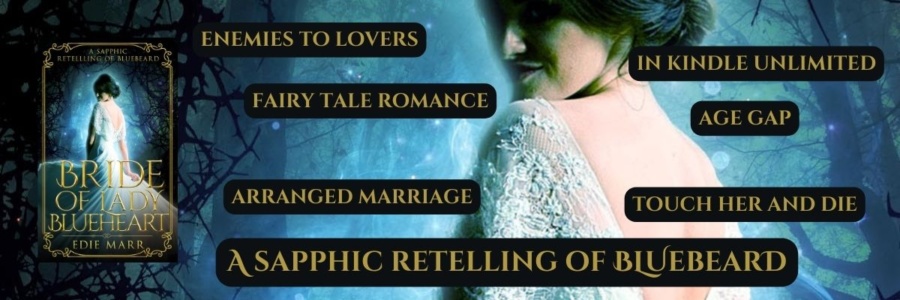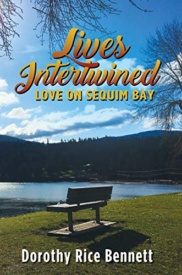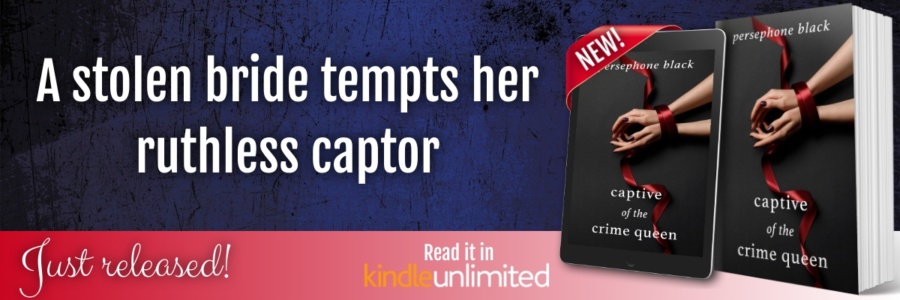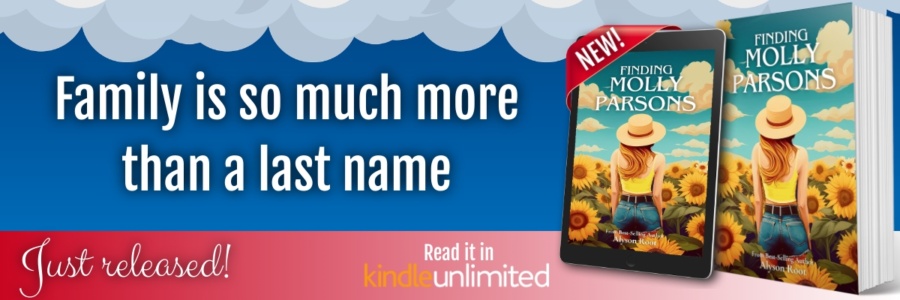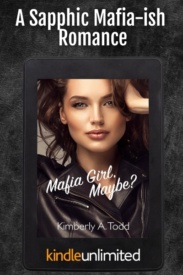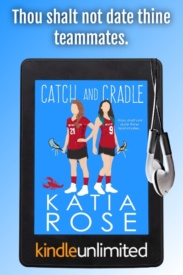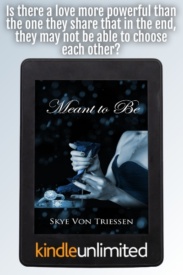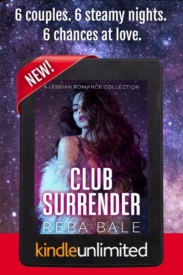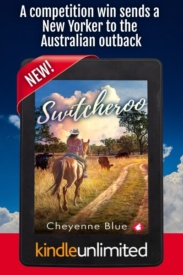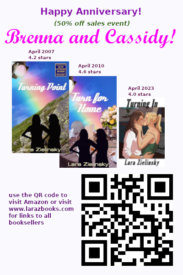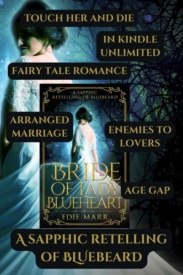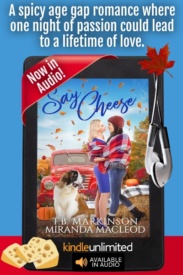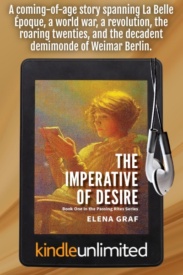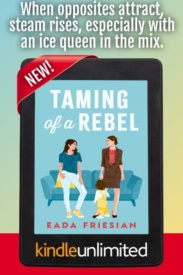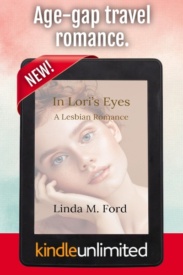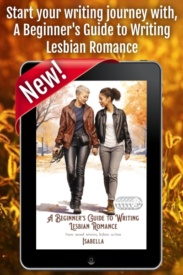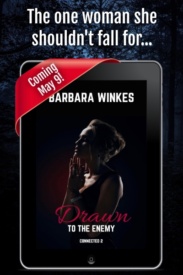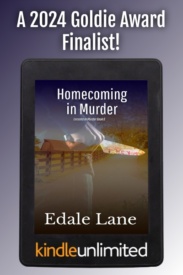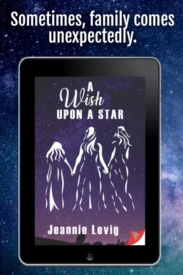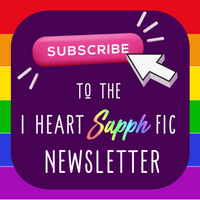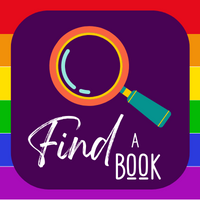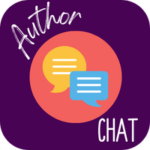
Get ready to learn more about the book Lives Intertwined in this discussion with sapphic author Dorothy Rice Bennett.
Join us for an exclusive peek behind the scenes as we quiz Dorothy Rice Bennett about Lives Intertwined, writing, reading, and more.
This book is part of the Starting Over Romance category in the 2024 IHS Reading Challenge.
Why did you write Lives Intertwined?
Sequim, WA, has a lot of natural beauty, and seniors, including lesbian seniors, move here for the gorgeous landscape and moderate climate. However, Sequim is a relatively small town, and lesbians, especially younger ones, have a hard time finding work, a place to live, and social activities. It can be lonely. When I saw a sign saying that a large house with 5 bedrooms was for rent overlooking Sequim Bay, my mind jumped at the idea of several lonely lesbians sharing the house and making friendships–maybe more than that. It seemed so logical and realistic. I filed the idea away, feeling that it was an interesting concept. I didn’t think about a series until it was brought up by one of my beta readers, and then I felt really excited that maybe I could do more with this idea than just one book.
Who is your favorite character in the book?
I love Aggie Hollister, who is sort of earth mother. I wish I had had an earth mother in my life, or that I could have become one. In actuality, I am more like Wilma, a perfectionist, a shy person who has pushed myself out into the professional world and tried to achieve something. I’m happier at home surrounded by books, movies, and music. And just a few good friends and a partner.
What inspired the idea for Lives Intertwined?
When my partner died in 2010, I had to deal with loneliness–and a small town can be a very lonely place, especially without the distractions and activities available in a big city. I so wanted not to be lonely myself–and thankfully I found a new friend to live with–but I wanted to write about lesbians dealing with loneliness.
What was the biggest challenge writing this book?
I had never created so many characters before for one book. There are six heroines and two dogs. Writing scenes that featured all of them and still keeping the main thread of a story going was challenging for me. In the long run, it was also very satisfying, as if I had given these lesbian women a chance at a happier life.
What part of Lives Intertwined was the most fun to write?
Wilma asking Aggie to marry her and their plans for a wedding. Their happiness made me happy!
How did you come up with the title for your book?
Living in this big house forced all the characters to become, in some sense, involved with each other, and I kept looking for words that expressed that. After checking word definitions, I decided I had the best word choice for the main title, but I had called it: The Housemates, for a subtitle. My editor, Ronnie Sanlo, didn’t much care for the subtitle and suggested “Love on W. Sequim Bay Road.” That seemed a little off to me, so I came back with “Love on Sequim Bay” and we agreed on that.
How much research did you need to do for Lives Intertwined?
A small town doesn’t have a lot of secrets. It’s just out there. I did look up details about things involving the characters, especially Teddi, who is trans. I’ve met two trans people here in Sequim, but knowing them gave me as many questions as it answered. I had a lot more research to do for the second and third books in the series than I did the first.
If you’re planning a sequel, can you share a tiny bit about your plans for it?
The second book features Brit and Ginger and their relationship (the long-distance experience), and the third book focuses on Aggie and Wilma and serious issues that come up within their relationship a couple of years after their marriage.
What is your favorite line from your book?
“Aggie, would you do me the honor of becoming my bride?” Wilma, the introvert, kneeling on one knee asking Aggie to marry her in the middle of dinner, touched a lot of readers and brought some tears. This was a real high point for me.
What is your writing process like?
My stories are character-driven. My characters talk to me all the time and tell me what they want. When I listen to them, my writing just flows. I wish I could come up with a perfect plot, but I suspect this is the way I’m made and my writing will be.
Where do you usually write, and what do you need in your writing space to help you stay focused?
I write at an Apple computer, a laptop but with a big screen behind it, in my office space. My dog, Bella, an aged toy poodle, lies on her bed near me and usually is quiet. I shut the door to keep out the TV and music or talking. I need a quiet space where I can focus on that dialogue in my head and get it down on paper. I can do about 2000 words or so at a sitting, and then I’m done for the day.
If you could spend a day with another popular author, whom would you choose?
There are many authors that fascinate me, and I read a lot, but Susan X. Meagher has most amazed me. She writes such long books and has done so many of them, with great settings and deeply complex characters, and I wonder how she has done it and had the determination to publish them herself, to be ble to say what she wants to say. I think she’s really special.
What’s your favorite writing snack or drink?
I’m a Coke Zero fan, but only one a day. After that, it’s bottled water. I snack on cookies, nuts, apples, and dark chocolate candy. I’m not a cook or a baker, so you won’t get any recipes from me. Dark chocolatge Oreos are my current addiction.
How do you celebrate when you finish your book?
Believe it or not, I catch up on all the things I didn’t get done while I was writing. When I’m doing a book, especially as publication gets close, I can’t keep up with the mail or anything in my surroundings. So, after the book is out, I can’t help starting to toss mail and trash and filing things. And I do heave a huge sigh of relief. Within days, I’m thinking of starting another book, and here we go again.
Is there a particular genre you would love to write but only under a pseudonym?
I write my lesbian novels under a pseudonym. If I were to do it over again, I might not, because it gets complicated and tricky and extra work. But in my generation, it was hard to come to terms with being a lesbian, and it was natural to fear the reaction of people who knew about it. That has changed somewhat, but I’m aware of current political changes and the possibility that the bad times could come back.
Do you have a pet who helps/hinders your typing?
Bella, my 13-year-old apricot poodle, sleeps on her office bed most of the time when I’m writing. She’s a good companion in not bothering me when I write. Bella came to me at eight weeks old and, of the five poodles I’ve had, has been the most difficult. She is an “alpha,” meaning she thinks she’s the boss of everything. She barks at everyone, everywhere. And you can’t stop her. I’ve tried every trick and tool. She tolerated her half-sister, Nikki, a black poodle, for 10 years until Nikki died of cancer in her foot in 2022. Nikki was adorable but had been abused in another home before she was given to me at the age of 5. My partner and I just tried to love her, and she gradually responded. Now that Nikki’s gone, Bella is lonely and very demanding of attention.
What are three words that describe your personality?
Independent, stubborn, soft-hearted. I didn’t hang out with kids at school; as an only child, I had to figure out things for myself; I went to college after my junior year of high school–scared that I might flunk out and have no high school diploma but still wanting to go. I’ve always been stubborn. I want to do what I want to do my way. If nobody else wants to do it, that’s tough. I adopted an emotionally disturbed child of 9 whom her father had sexually abused; it wasn’t easy living with her and her anger, but I wanted to save her, and I did. I’m a sucker for all the “causes” in the world, from starving babies to abused animals to children with cancer; I get caught up in supporting them, to the limit of my finances, of course!
What is the most valuable piece of advice you’ve been given about writing, and by whom?
I don’t know many other people who write, but I have read books about writing. I think the most important advice I’ve found anywhere is to just write. Don’t worry about things being perfect in the first draft. Just get it on paper. I took that seriously and whatever comes in my head, I just put it down. I can ad, subtract, and clean up later.
What has helped or hindered you most when writing a book?
I have a lot of interests, and it’s hard for me to ignore everything else in order to write. I have learned to look away from the mess in my office and clean it up when I finish writing a book. The piles of papers in my office don’t go over well with everyone around me, but I just close the door. Once I’m behind the computer, my writing cap is on and I start typing away.
When you’re writing an emotional or difficult scene, how do you set the mood?
I sometimes have to walk away from difficult scenes. I write the material around those scenes and then come back to the hard part. Somehow, doing that makes it less daunting, and once I get comfortable myself with what I’m about to put on paper, I’m able to do it.
What do you do to get inside your character’s heads?
When I’m driving my car, I let them talk to me. They are very chatty. I have allergies and have to go to a doctor for shots an hour away from Sequim in Silverdale, WA. On the road, with my Bella in her basket in the back seat, I find I can allow the story to evolve in my head.
If you could be mentored by a famous author (living or not), who would it be?
J. A. Jance, a famous mystery writer who lives in the Seattle, WA, area. Her more than 70 books have flawed but fascinating characters and her plots are amazing. She visits the Port Angeles, WA, library (near where I live) when a new book comes out and claims she has never had a co-author and that all her research and writing are her own. I’m sure I could learn a lot from her!
What author in your genre do you most admire, and why?
Susan X Meagher. She has written lots of Sapphic novels that are long and with complex plots and characters. I admire her courage, determination, and willingness to publish her own novels so she can say what she wants to say, and in as many words as it takes, rather than shortening her books to meet outside demands and expectations.
Have you ever cried when writing an emotional scene?
For some reason when I’m writing a book, my feelings are mostly held in check. But when it’s done, and I start reading again from the beginning, I can be quite touched. For example, in LIVES INTERTWINED: Love on Sequim Bay, Wilma suddenly asks Aggie to marry her during a dinner when all the main characters are present. There is no build-up for this; Wilma just does it. The surprise is part of what makes it so touching. I’ve had readers tell me that they cried at that moment, as well.
Do you feel bad putting your characters through the wringer?
Since I know where the book is going, and that everything will turn out okay, I don’t feel bad having a character go through stress, problems, pain, or other issues. They will learn and grow from whatever it is, so it’s all good. I know that in SUNBEAMS ANS RAINDROPS, Wilma will get better with massage and therapy, so I’m not upset while she’s worrying about her hands and what might happen to her as a result.
Have you ever hated one of your characters?
In LONG-DISTSANCE LOVING, I gave Brit a rather nasty fellow student who wanted to get involved with her and vice versa. Charlene Cowen is attractive and has money and wants control over Brit. I wrote several scenes in which the two interacted, and I really didn’t much like Char. I knew before the end of the book, Brit would have to stand up to her, and, gloriously, she did.
What type of books do you enjoy reading the most?
Aside from sapphic fiction, which I read constantly, I love books about women’s contribution during World War II. I was born during the war and grew up watching movies about men as soldiers during the war. It was only recenly that I started finding books about women who served during the war in a variety of ways, many of them just as dangerous as what men faced and endured. I am really touched by the stories of their sacrifice and whether written as fiction or fact, the stories amaze me and make me feel quite touched and ultimately very good.
Are there any books or authors that inspired you to become a writer?
I read up to seven books a week as a child. THE NUN’S STORY made me cry, and I wasn’t even Catholic. It wasn’t just the nun’s character and her desire to serve but her determination to do it her own way, as a nurse, not the way she was told to do it. Every book I read made me want to write and to become an author, but I didn’t think I had the skills to do it to make a living.
What books did you grow up reading?
I have always been an avid reader, but I have seldom read a book more than once. I’m hungry for more and different. I also love movies, and thanks to video, I have been able to watch my favorite movies many times.
What book do you wish you had written?
WHEN THE STARS SANG by Caren J. Werlinger. I love the small community on an island off the coast of Maine, the wonderful characters, the sense of history and spirit, the caring relationships among the people who live on Little Sister, the past tragedies and their lingering effect–well, just everything. The fact that it became a series is especially significant, because when I finished the first book, I wanted it to go on.
Describe your favorite reading spot.
I have an adjustable bed frame, so I can read sitting up in bed, and my dog is sleeping beside me. I read in the evening, mostly, before bedtime.


